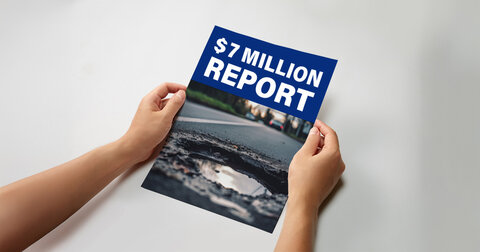Consumers Energy requests another rate hike one week after approval of $154 million increase
‘Monopolies are gonna monopoly,’ says Mackinac Center expert
Attorney General Dana Nessel criticized Consumers Energy on April 1 for seeking a rate hike request shortly after the Michigan Public Service Commission approved a $154 million increase it sought in an earlier request.
The earlier request, from 2024, was settled on March 21, 2025, Danny Wimmer, press secretary for Nessel, told Michigan Capitol Confidential in an email. Consumers gave the state its filing announcement for that increase on March 29, 2024, with a full application coming at the end of May of that year.
On March 28, 2025, Consumers Energy went back to the state for another increase, Wimmer told CapCon. He added that the company said it would file a formal application on or after June 2.
The attorney general quickly panned the request. “They’re back with their hands out before putting any of their new earnings to work for their customers,” Nessel said of the utility’s latest request for a rate increase.
“The Attorney General intervenes in every utility rate hike case before the [Michigan Public Services Commission] by filing testimony to address where the utilities’ purported investments don’t chiefly benefit their customers or when they seek ratepayers funding of efforts meant to enhance their profitability, rather than reliability, affordability, or grid resilience,” Wimmer wrote to Michigan Capitol Confidential in an earlier email.
The state allows energy companies to request a rate hike every 12 months.
Jason Hayes, director of energy and environment at the Mackinac Center for Public Policy, called the latest request “audacious.”
State government is supposed to protect consumers from unreasonable rate increases, Hayes said.
“Put simply, monopolies are gonna monopoly,” said Hayes in an email to CapCon. “Government officials have left Michiganders trapped, with no options but to face skyrocketing prices for some of the nation’s least reliable services from utilities like Consumers and DTE.”
Legislators killed the state's electricity choice law in 2008, Hayes said, and residential rates have surged 75% since then. The result, he said, is that the state went from being 10% below the national average in rates to being 10% above it.
“And Attorney General Nessel’s public outrage is, at best, laughable,” Hayes said. ”She and Gov. Whitmer have actively worked to fuel this crisis with their net-zero fixation and relentless attacks on affordable, reliable energy options like Line 5.”
Consumers Energy has told state regulators that it intends to file a rate request no sooner than June 2, Katie Carey, director of media relations at CMS Energy, told CapCon in an email. The utility must file a notice because of a 2016 energy law, she added.
Consumers Energy has received the following rate increases since 2020:
- $100 million in 2020
- $27 million in 2021
- $155 million in 2023
- $92 million in 2024
- $154 million in 2025.
CMS Energy, the company that owns Consumers Energy, had a 13.23% increase in profits year-over-year in 2024, according to Macrotrends.
Michigan Capitol Confidential is the news source produced by the Mackinac Center for Public Policy. Michigan Capitol Confidential reports with a free-market news perspective.


 State climate conference to tout clean energy plans that will raise electricity costs
State climate conference to tout clean energy plans that will raise electricity costs
 EGLE flap leaves 150,000 tons of waste headed for Michigan landfills
EGLE flap leaves 150,000 tons of waste headed for Michigan landfills
 Whitmer claims credit for helping Michiganders, but her policies raise costs
Whitmer claims credit for helping Michiganders, but her policies raise costs

 Bills would redirect corporate welfare to pave roads
Bills would redirect corporate welfare to pave roads
 Whitmer’s $83.5B budget won’t fix the roads, lawmakers say
Whitmer’s $83.5B budget won’t fix the roads, lawmakers say
 Whitmer wafts 32% tax on pot
Whitmer wafts 32% tax on pot